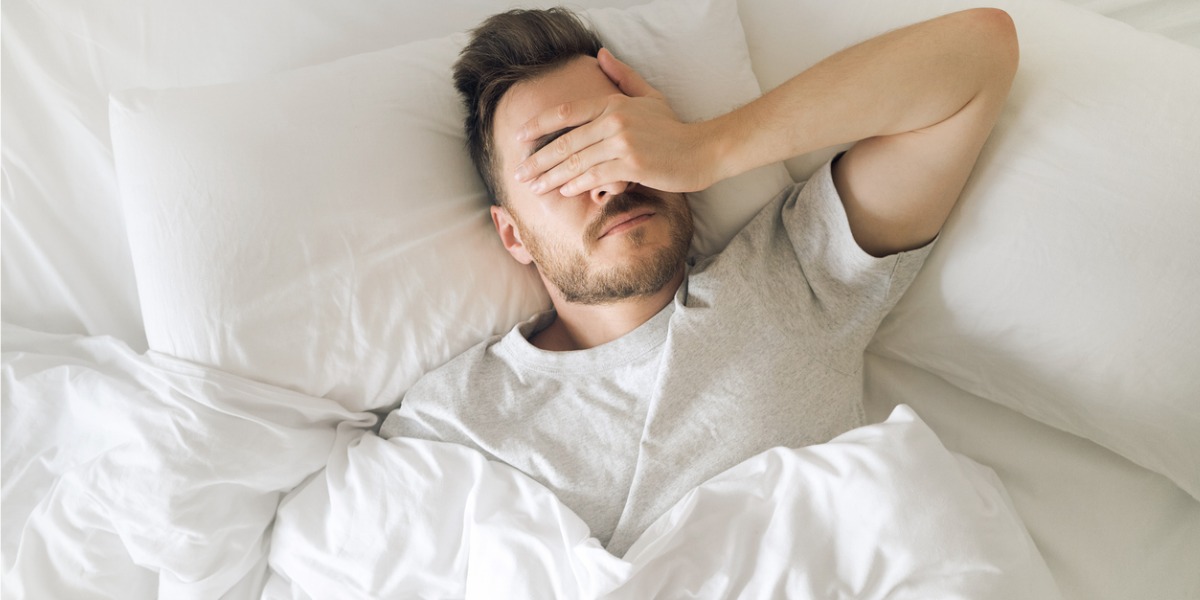Failure to get adequate sleep can lead to a variety of health problems, including heart disease, hypertension (high blood pressure), and stroke – and a recent genetic study indicates that failing to get a good night’s sleep on a regular basis may also increase a person’s risk of depression.
Noting that a link exists between poor sleep and depression is hardly newsworthy. But this study, published in October 2023 in the journal Translational Psychiatry, may establish a heretofore elusive cause-effect relationship between insufficient sleep and depressive disorders.
After analyzing data from more than 7,000 adults, the study team determined that people with a genetic predisposition to sleep fewer than five hours per night have a significantly elevated risk of developing depression.
The Genetics of Sleep & Depression
Three experts from University College London conducted the study, which included the following features:
- Data from 7,146 adults ages 50 and above, collected by the English Longitudinal Study of Aging (ELSA).
- Three participant categories, based on average duration of sleep:
- The short-sleep group included subjects who slept fewer than five hours per night.
- The optimal-sleep group included those who averaged five to nine hours of sleep.
- The long-sleep category consisted of adults who typically slept for more than nine hours.
- Subjects assessed for depression via the Centre for Epidemiologic Studies Depression Scale (CES-D).
- Genomics experts conducted genome-wide genotyping on DNA samples.
The research team tracked their subjects for up to 12 years following their initial assessment, with an average follow-up duration of eight years. At the conclusion of the study, the researchers reached the following conclusions:
- A genetic predisposition for short sleep – less than five hours per night – was strongly associated with a likelihood of developing depressive symptoms over the course of the study.
- Long sleep was also associated with depression, but the link was not as strong as with short sleep group.
- The data indicated no significant associations between having a genetic predisposition for depression and sleep duration.
In other words, the researchers determined that abnormal sleep – especially low sleep – is a risk factor for depression. However, a genetic risk of depression does not influence how much sleep a person gets.
Dr. Odessa S. Hamilton, lead author of the study, offers this insight in an interview in Science Daily:
“We have this chicken or egg scenario between suboptimal sleep duration and depression, they frequently cooccur, but which comes first is largely unresolved. Using genetic susceptibility to disease we determined that sleep likely precedes depressive symptoms, rather than the inverse.”
Understanding How Sleep Affects Mental Health
Though the UK study discussed in the previous section represents a breakthrough in the use of genetics to define the relationship between poor sleep and depression, it’s not the first attempt to understand how sleep affects mental health.
The National Heart, Lung, and Blood Institute (NHLBI), a division of the National Institutes of Health (NIH) reports that sleep deficiencies can influence myriad other mental and cognitive concerns, including:
- Anxiety
- Anger management problems
- Impulsivity
- Mood swings
- Low motivation
- Impaired focus and concentration
- Poor problem-solving and decision-making
- Suboptimal risk assessment
- Suicidal ideation
What isn’t as clear, though, is the mechanism by which sleep deprivation causes these types of challenges. For example, the NHLBI article doesn’t get more specific than noting “sleep helps your brain work properly” and “sleep deficiency changes activity in some parts of the brain.”
We need more to go on than that.
An article published in September 2023 by the American Chemical Society (ACS)offers what we need: a more detailed description of what occurs in a sleep-deprived brain. That ACS reports the following:
- Sleep deprivation leads to neurological damage in the hippocampus, an area of the brain that is associated with processing emotions and regulating mood.
- The brains of sleep-deprived mice had diminished levels of a protein called pleiotrophin (PTN), which causes cells in the hippocampus to die.
- Genetic studies involving humans link PTN with several neurodegenerative diseases, including Alzheimer’s disease.
The findings in the ACS article are consistent with information in an earlier study published in the journal Learning and Memory.
That study found sleep deprivation disrupts synaptic plasticity in the hippocampus. The term synaptic plasticity refers to the brain’s ability to alter connections within neural networks.
Other studies have linked dysfunctional synaptic plasticity with various mental and neurological conditions, including schizophrenia and Alzheimer’s disease.
Avoiding the Effects of Sleep Deprivation and Depression
Though considerable work remains in the effort to fully understand the link between sleep deprivation and depression and other mental illnesses, there’s little doubt insufficient sleep is detrimental to physical, psychological, and emotional health. Conclusive evidence also shows there are no effective ways to make up for lost sleep.
This means the only way to avoid cognitive and emotional harm due to a lack of sleep is to make sure that you get an ample amount of sleep on a consistent basis. Unfortunately, with the Centers for Disease Control (CDC) reporting that about one-third of adults in the U.S. don’t get enough sleep, this is clearly a challenge for millions of Americans.
Though some negative influences on sleep – such as work schedules and noisy neighbors – may be beyond your control, the good news is that you can take several steps to increase both the amount and the quality of your sleep.
The American Academy of Sleep Medicine offers the following advice for improving your sleep hygiene:
- Follow a schedule. Try to go to bed and wake up at the same time every day. Yes, this includes weekends, too.
- Stop using your computer, tablet, phone, and other electronic devices at least 30 minutes before going to bed.
- Minimize light in your bedroom and maintain a cool but comfortable temperature.
- Avoid alcohol, other fluids, and large meals before bedtime.
- Follow a healthy diet and get an appropriate amount of exercise on a regular basis.
- If you continue to have difficulty falling asleep or staying asleep, talk to your doctor or another qualified healthcare provider.
Depression Treatment in Southern California
If your sleep habits cause or are related to depression, simply improving your sleep hygiene may not be enough to improve your mental health. But the good news is that depression is a treatable condition. When you get proper care – which often involves a combination of medication and therapy – you can regain control of your thoughts and achieve improved health.
If you or someone in your family experiences acute symptoms of depression, to the point they have had a debilitating impact on the ability to work, attend school, and maintain healthy relationships, Crownview Psychiatric Institute may have the solution you seek.
Guided by the principles established in the Unified Protocol for the Treatment of Emotional Disorders, our dynamic, innovative approach includes multiple forms of therapy, adjunct services, educational sessions, case management, and true wraparound support.
To learn more about how we can help you or your loved one, please visit our Contact Us page or call us today.


 Gianna Melendez
Gianna Melendez Jodie Dahl, CpHT
Jodie Dahl, CpHT